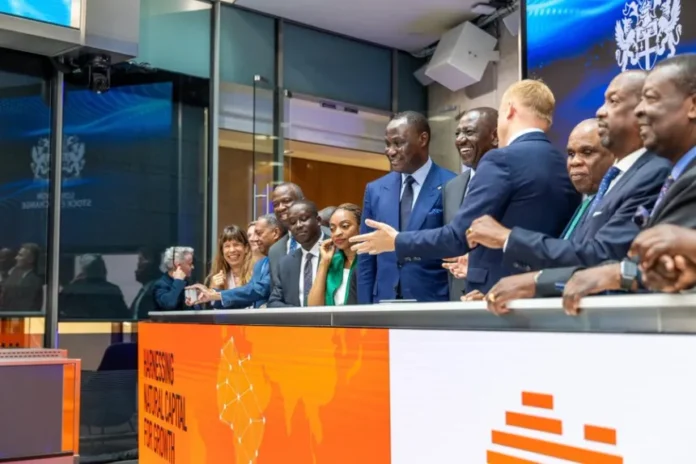President William Ruto has announced bold plans to privatize key state-owned enterprises through the Nairobi Securities Exchange (NSE), as part of sweeping capital market reforms aimed at accelerating national development and attracting global investment.
Speaking at the London Stock Exchange (LSE) during a bell-ringing ceremony to mark the start of Wednesday’s trading session, President Ruto emphasized the need for robust domestic capital markets to strengthen economic resilience and reduce reliance on external debt.
“Well-functioning capital markets enhance economic resilience by limiting exposure to volatile capital flows,” Ruto stated. “They reduce dependence on external debt and diversify investment opportunities.”
The President said Kenya would continue drawing inspiration from global financial hubs like London to build a more dynamic and investor-friendly stock market at home. He revealed that ongoing reforms have already yielded results, with the NSE ranked Africa’s top-performing stock exchange in dollar returns for 2024.
To deepen the market further, President Ruto announced that key state assets will be listed on the NSE through Initial Public Offerings (IPOs). “We are committed to a programme that identifies and prepares a pipeline of key government assets to be privatised through the exchange,” he said.
He singled out the Kenya Pipeline Company (KPC) as one of the first to go public, with its IPO expected later this year. “This will offer investors a unique opportunity to deploy capital in one of our most strategic infrastructure enterprises,” he added.
The President’s delegation included Prime Cabinet Secretary Musalia Mudavadi, National Treasury Cabinet Secretary John Mbadi, Investment, Trade and Industry CS Lee Kinyanjui, and outgoing Afrexim Bank President Benedict Oramah. They were received at the LSE by its CEO, David Schwimmer.
The move is part of Kenya’s broader agenda to make its capital markets globally competitive and attractive to both local and international investors while unlocking the value of state corporations to support sustainable economic growth.
Written By Rodney Mbua



















